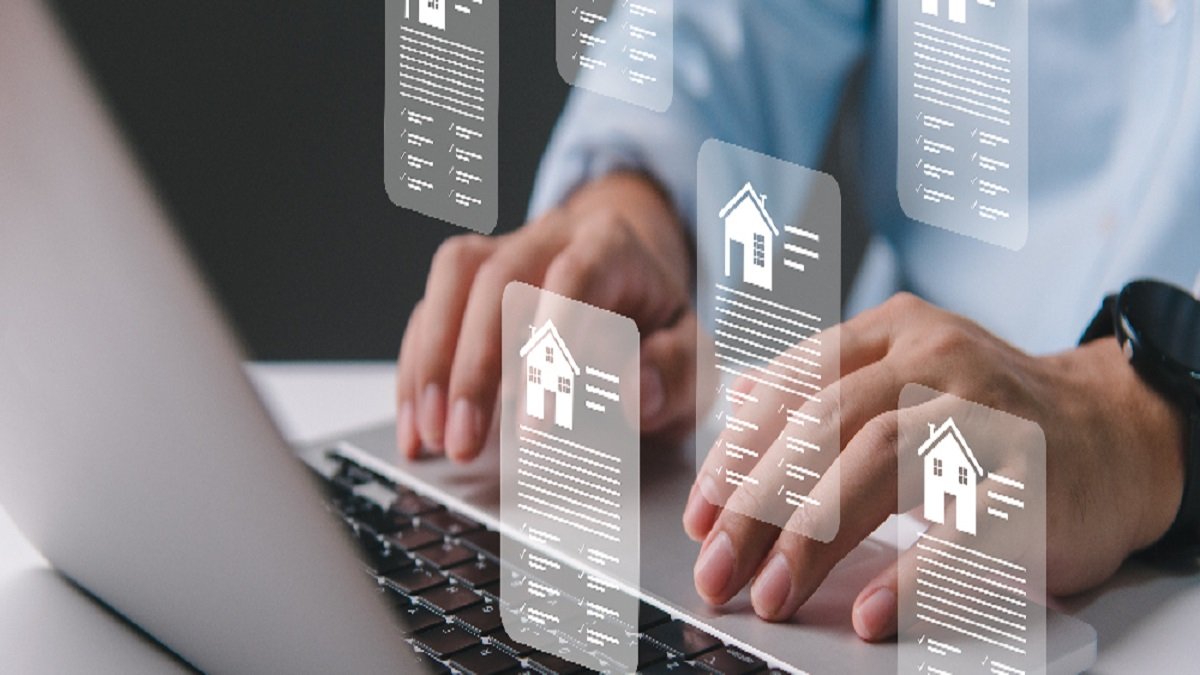Several published studies have examined the right age to buy a house. But is there a certain age at which one should invest in a house, or is it just the stage of life that counts? Many experts think that a person’s financial situation should dictate whether or not he is prepared to purchase real estate!
For many people, purchasing a house is a dream. Some people join the purchasing circle a bit later, while others attempt to make this a reality by saving from a young age. However, almost everyone is curious about the ideal age to make one of life’s most significant choices.
Proper Age To Buy A House

1. Financial Readiness – Building a Solid Foundation
Key factors to assess:
- Down payment: Ideally, a 20% down payment will help you avoid private mortgage insurance (PMI) and secure better interest rates.
- Credit score: A good credit score can save you thousands of dollars in interest over the life of the loan.
- Debt-to-income ratio (DTI): Financial institutions assess your ability to pay back a loan based on your DTI ratio, making it crucial to minimize other debts before purchasing a house.
- Emergency savings: Homeownership comes with unexpected costs like repairs, maintenance, and property taxes. Having an emergency fund is essential for long-term stability.
Financial readiness is one of the most critical factors in determining the right age to buy a house. At a younger age, many people are still building their savings, climbing the career ladder, and may not yet have the financial cushion to take on homeownership. If you have strong savings, a high credit score, and low debt, you might be more ready to make this major purchase.
Average age to buy:
Typically, many first-time homebuyers purchase between the ages of 28 and 35, when they are more likely to have some savings and a stable income.
2. Stability in Your Career and Income
Key factors to consider:
- Job security: Buying a house requires long-term financial commitments. Job instability or frequent career changes can make homeownership a risky investment.
- Income trajectory: If your income is steadily increasing, it may be easier to afford a home, whereas erratic or stagnating income can complicate mortgage approval and sustainability.
Homeownership is a long-term investment, and securing a stable career can ensure that you have a reliable income to cover mortgage payments, property taxes, and maintenance costs. Many individuals opt to wait until they have a steady job or career before committing to buying a house. If you’re in a transient phase of your career or unsure about job security, delaying homeownership may be wise.
Ideal age range:
In general, those in their late 20s to early 40s, once they have found stability in their career and earning potential, are often in the best position to purchase a home.
3. Personal Life Stage and Family Planning
Key factors to assess:
- Relationship status: Are you planning to settle down with a partner or family? A home purchase can become more meaningful and practical when you’re ready to settle into a long-term living situation.
- Children and family growth: If you plan on having children or need extra space for a growing family, you may need to consider a home that accommodates those plans.
The right time to buy a house is also tied to life stages, such as whether you plan to settle down, get married, or start a family. Younger buyers may not need a permanent home and could benefit from flexibility in housing. However, individuals in their early 30s or 40s may be more inclined to purchase homes for family expansion, considering factors like school districts, safety, and proximity to work.
Optimal age:
Those in their late 20s to early 40s, often amid family planning, may find homeownership particularly valuable, especially when considering the need for larger spaces and stability.
4. Long-Term Financial Goals: Assessing Your Future
Consider the following financial goals:
- Building equity: Homeownership allows you to build equity over time, as opposed to renting, where your monthly payments contribute to someone else’s investment.
- Retirement planning: If you intend to stay in your home long-term, it can become a valuable asset in your retirement portfolio.
- Investment diversification: Real estate can be a solid long-term investment option, but buying a home too early without diversifying your assets may limit your financial flexibility.
For some, buying a home is a way to build long-term wealth. However, if you’re still early in your financial planning, purchasing a home could limit your ability to diversify investments. Consider how homeownership fits into your broader financial goals, including retirement savings, stock investments, and other assets.
The ideal time to buy:
Homeownership tends to make the most sense for those who are beginning to focus on long-term wealth-building, typically in their 30s or early 40s when they have clearer financial objectives.
5. Real Estate Market Conditions
Factors to evaluate:
- Interest rates: Mortgage rates fluctuate and can significantly affect the overall cost of purchasing a home. Waiting for a favorable market condition may save you money in the long run.
- Housing market trends: Understanding whether you’re buying in a seller’s or buyer’s market can impact how much you pay for your new home. Market conditions are often cyclical, and timing your purchase during a market dip could be more advantageous.
While your personal situation is crucial at the right age to buy a house, external factors such as the real estate market and interest rates also play a pivotal role. Low interest rates and favorable housing conditions can make purchasing a home more appealing, but they often don’t last long.
Best age to buy in the market cycle:
Many buyers prefer purchasing during times of low interest rates, often seen during certain phases of economic recovery, typically in their 30s or 40s when financial stability is stronger.
6. Flexibility and Mobility
Assess the following:
- Lifestyle flexibility: Renting offers mobility, which is crucial for people with jobs that require frequent relocation or those who aren’t sure about staying in one place.
- Owning vs. renting: Renting may make more sense for younger individuals who haven’t yet settled into a career or long-term life plan. However, if you’re ready for stability and longer-term commitment, buying a home is a better option.
While homeownership offers stability, renting may be a better choice for those in the early stages of their career or personal life. Flexibility is essential when you’re not sure about your next move or if you’re still exploring new cities or job opportunities.
The right age for flexibility:
Early 20s to late 20s are often the best years for renting, while individuals in their 30s and beyond may benefit from the stability and long-term investment of homeownership.
7. Personal Readiness for Responsibility
Key aspects of responsibility:
- Maintenance and upkeep: Owning a home means taking care of repairs, maintenance, and yard work. Are you ready for these responsibilities?
- Long-term commitment: Unlike renting, homeownership ties you to a location, and selling a home is not always easy or fast. Consider whether you’re ready for this long-term commitment.
Deciding the right time to buy a house comes with significant responsibilities, from repairs and renovations to property taxes and insurance. People in their late 20s or early 30s may feel a greater sense of readiness to shoulder these responsibilities than younger individuals.
The best age for readiness:
Those in their late 20s to early 30s, when they’re more likely to be in a stable career and family situation, may feel ready to take on the duties associated with homeownership. It is the right age to buy a house.
8. Emotional and Psychological Readiness
Factors to consider:
- Desire for stability: Do you crave a permanent home, or are you still in the phase of exploring different living situations?
- Homeownership as a personal goal: Some people see buying a house as a personal milestone. Is this something that resonates with your identity and goals?
Emotional and psychological readiness is just as important as financial readiness. For many, buying a home symbolizes stability, security, and success. If you’re eager for a permanent base and feel confident in your long-term plans, it may be the right time to buy.
Ideal age for emotional readiness:
Many people feel emotionally ready to buy a home in their late 20s to early 30s, when personal goals align with financial capability.
Wrapping Up
Based on these factors, the right age to buy a house generally falls between 30 and 40 years. This range strikes a balance between personal preparedness, professional establishment, and financial security.
The early 30s: Many people at this age have a steady career, a respectable amount of money, and a better idea of their long-term objectives, both personal and professional. Additionally, they can manage the obligations of owning and often have superior credit scores.
Mid To Late 30s: The mid to late 30s are often when people feel ready to settle down, especially if they placed a high value on travel, professional advancement, or more schooling throughout their formative years. They often have significant funds and more employment stability at this point, which facilitates the home-buying process.
A balanced strategy that balances professional stability with financial preparedness is to aim for the early to mid-30s. Before making this investment, it is crucial to assess your situation, the state of the market, and your long-term objectives. When you feel financially stable and personally prepared for homeownership, whether you are in your 20s or 40s, it is the ideal time to purchase a home.
FAQ
Q: When purchasing a home, how old should it be?
A: The ideal age to strive for does not exist. Many people believe that “they just don’t make them like they used to” or that older houses are sturdier and more well-built than contemporary ones. There are undoubtedly some older houses that are quite well-built and have endured throughout time.
Q: At what age may someone own a home?
A: Property cannot be purchased by minors until they reach 18, at which point it legally belongs to them. It must be owned for them by a trustee until then. Taxes and any other costs related to the property must be paid by the parents.
Q: What age is ideal for taking out a house loan?
A: Although you may technically apply for a house loan as early as age 18, it is usually recommended to do so between the ages of 30 and 50. However, several criteria come into play when determining whether to purchase a home, and the optimal age to get a housing loan is the age at which these elements come together favorably.











